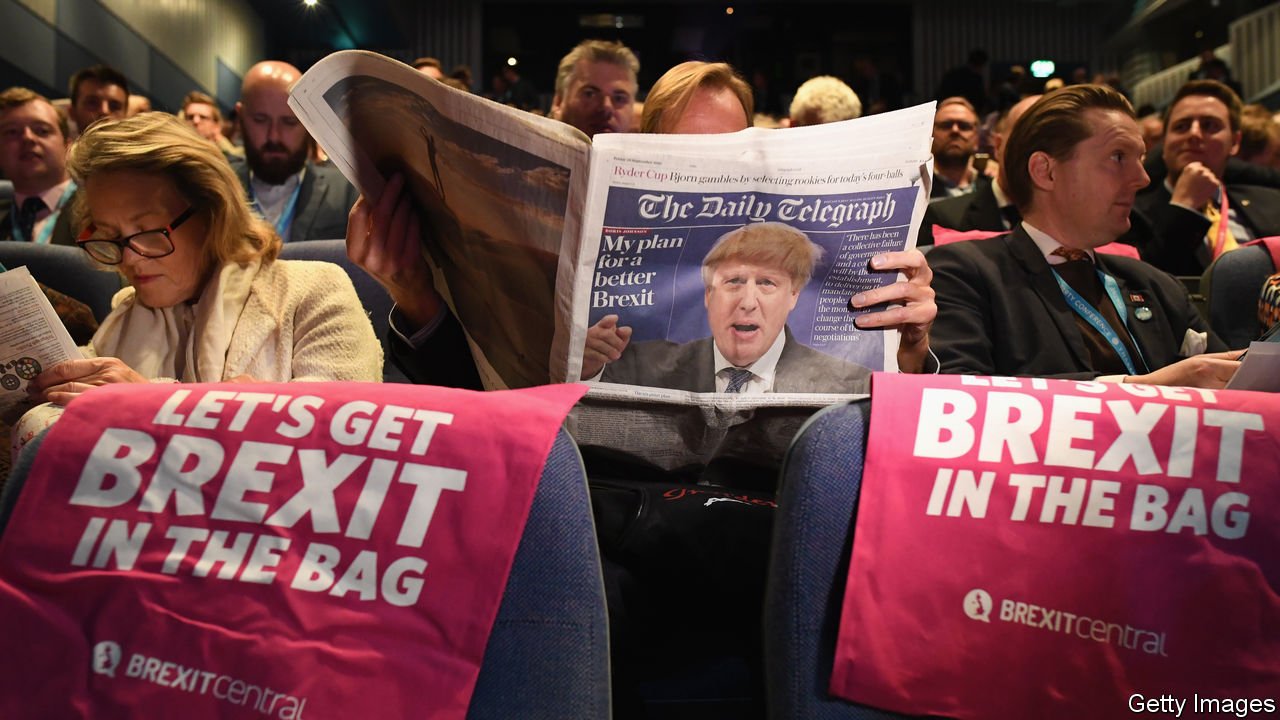By BAGEHOT
THE first thing that you notice in Birmingham is that the Conservative Party is hopelessly split on Brexit. The government is united (for now) over Chequers. Most of the party faithful hate it. On September 30th hundreds of people queued for more than an hour—the queue snaking down the stairs; people locked in animated conversations—to hear eight leading Brexiteers address a “conference rally” put on by a pro-Brexit website, Brexit Central. To burnish their “party within a party” credentials Brexit Central provided attendees with a purple ribbon to replace the regular blue ribbon issued by the Tory Party to hang the all-important conference passes on.
The Conservative Party has always been an alliance of what might be called the City and the Country. The City consists of big business and big finance. It believes (for the most part) in global markets and liberal economic policies. The Country consists of country squires and the provincial bourgeoisie. It believes in conserving all that is best in Britain from country estates to market towns. This is Benjamin Disraeli’s “villa conservatism” and Stanley Baldwin’s “property-owning democracy”. Brexit has driven a coach and horses through this alliance. The more numerous Country faction is determined to make its voice heard in Birmingham.
The Labour Party looked much more united in Liverpool: the energy in the conference was very much with “Jeremy” rather than against him. But this was something of an illusion. The party is profoundly divided over Brexit. The Labour Party is as much an unwieldy alliance as the Tories: this time between the middle-class intelligentsia and the manual working-class. Or what Sidney and Beatrice Webb called “workers by brain” and “workers by hand”. Brexit has also driven a coach and horses through this alliance: “workers by hand” frequently voted for Brexit whereas “workers by brain” overwhelmingly voted against it. Whether this has exposed an economic tension between the two groups is debatable: many economists think that Brexit will hit the manual working classes hardest (and this week Toyota made worrying noises about its inability to operate in Britain after a hard Brexit). But it has certainly exposed a cultural tension: the “workers by brain” merrily denounce the “workers by hand” as idiots, bigots, xenophobes and racists.
The party is also much more divided over Corbynism than the Liverpool Conference—or four-day rally—suggested. Labour MPs have repeatedly tried to get rid of Mr Corbyn only to be frustrated by his command of the party machinery. Many long-standing Labour Party members feel that “their” party has been stolen away from them. The reason for the appearance of unity is that the “soft” left kept such a low-profile. “Blairite” MPs either stayed away from Liverpool or focused on fringe meetings. The unity in Liverpool was not the unity of a party rallying behind its leader. It was the unity of a faction that has taken over the party and forced its rivals to turn tail and run.








